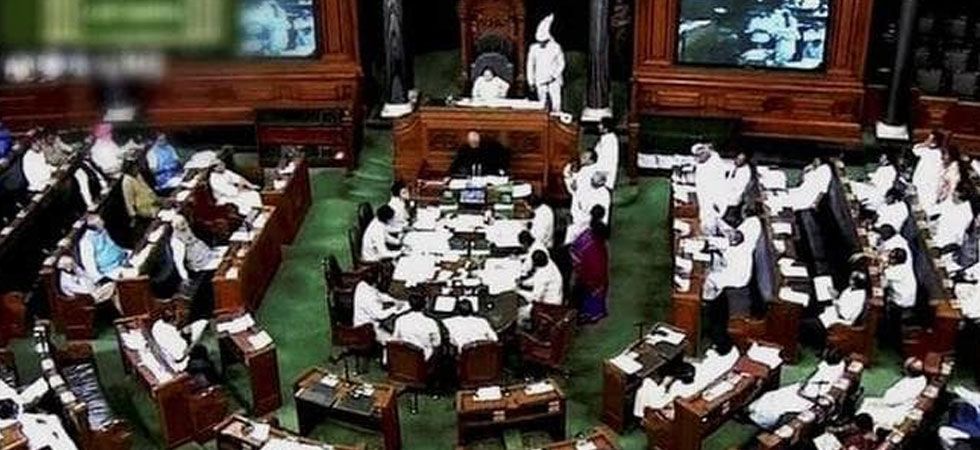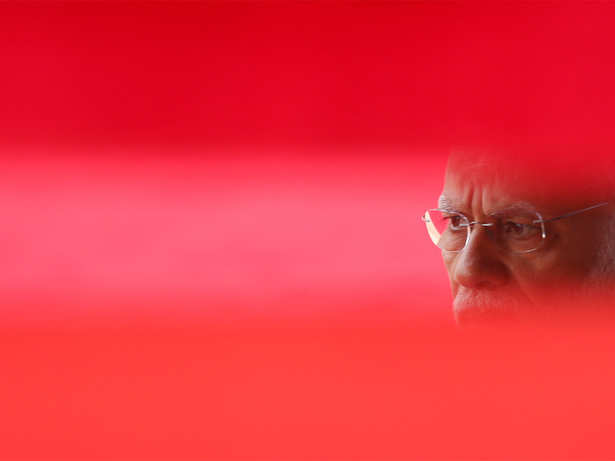Feature
Quota Bill for upper castes introduced in Lok Sabha

The government on Tuesday introduced a Constitution amendment Bill in the Lok Sabha that seeks to provide 10 per cent reservation for economically backward sections in the general category in government jobs and higher educational institutions.
The introduction of the Constitution (124th Amendment) Bill, 2019 by Social Justice and Empowerment Minister Thawarchand Gehlot was a smooth affair in the House with no member raising any objection.

The Bill, cleared by the Union Cabinet on Monday with an eye on the upper castes vote in the upcoming Lok Sabha elections, seeks to amend Articles 15 and 16 under whose present provisions the benefits of the existing reservations are generally not available for the economically weaker sections of the forward castes.
The statement of objects and reasons appended to the Bill said that the economically weaker sections of citizens have largely remained excluded from attending the higher educational institutions and public employment on account of their financial incapacity to compete with those persons who are economically more privileged.
The benefits of existing reservations under clauses (4) and (5) of Article 15 and clause (4) of Article 16 are generally unavailable to them unless they meet the specific criteria of social and educational backwardness, it said.
The directive principles of State policy contained in Article 46 of the Constitution enjoins that the State shall promote with special care the educational and economic interests of the weaker sections of the people, and, in particular, of the Scheduled Caste and the Scheduled Tribes, and shall protect them from social injustice and all forms of exploitation.

Under the Constitution (93rd Amendment) Act, 2005, clause (5) was inserted in Article 15 of the Constitution which enables the State to make special provision for the advancement of any socially and educationally backward classes of citizens, or for the Scheduled Castes or the Scheduled Tribes, in relation to their admission in higher educational institutions.
Similarly, clause (4) of Article 16 of the Constitution enables the State to make special provision for the reservation of appointments or posts in favour of any backward class of citizens which, in the opinion of the State, is not adequately represented in the services under the State.
However, the statement of the objects and reasons said the economically weaker sections of citizens were not eligible for the benefit of reservation.
“With a view to fulfil the mandate of Article 46, and to ensure that economically weaker sections of citizens to get a fair chance of receiving higher education and participation in employment in the services of the State, it has been decided to amend the Constitution of India,” it said.
Accordingly, the Constitution (124th Amendment) Bill, 2019 provides for reservation for the economically weaker sections of society in higher educational institutions, including private institutions aided or unaided by the State other than the minority educational institutions referred to in article 30 of the constitution and also provides for reservation for them in posts in initial appointment in services under the State, the government said in a statement.
The government decision has been described by the opposition as another “election gimmick” to garner votes.
Entertainment
Meghalaya Reserves Legalized Gambling and Sports Betting for Tourists

The State Scores Extra High on Gaming-Friendly Industry Index
Meghalaya scored 92.85 out of 100 possible points in a Gaming Industry Index and proved to be India’s most gaming-friendly state following its recent profound legislation changes over the field allowing land-based and online gaming, including games of chance, under a licensing regime.
The index by the UK India Business Council (UKIBC) uses a scale of 0 to 100 to measure the level of legalisation on gambling and betting achieved by a state based on the scores over a set of seven different games – lottery, horse racing, betting on sports, poker, rummy, casino and fantasy sports
Starting from February last year, Meghalaya became the third state in India’s northeast to legalise gambling and betting after Sikkim and Nagaland. After consultations with the UKIBC, the state proceeded with the adoption of the Meghalaya Regulation of Gaming Act, 2021 and the nullification of the Meghalaya Prevention of Gambling Act, 1970. Subsequently in December, the Meghalaya Regulation of Gaming Rules, 2021 were notified and came into force.
All for the Tourists
The move to legalise and license various forms of offline and online betting and gambling in Meghalaya is aimed at boosting tourism and creating jobs, and altogether raising taxation revenues for the northeastern state. At the same time, the opportunities to bet and gamble legally will be reserved only for tourists and visitors.
“We came out with a Gaming Act and subsequently framed the Regulation of Gaming Rules, 2021. The government will accordingly issue licenses to operate games of skill and chance, both online and offline,” said James P. K. Sangma, Meghalaya State Law and Taxation Minister speaking in the capital city of Shillong. “But the legalized gambling and gaming will only be for tourists and not residents of Meghalaya,” he continued.
To be allowed to play, tourists and people visiting the state for work or business purposes will have to prove their non-resident status by presenting appropriate documents, in a process similar to a bank KYC (Know Your Customer) procedure.
Meghalaya Reaches Out to a Vast Market
With 140 millions of people in India estimated to bet regularly on sports, and a total of 370 million desi bettors around prominent sporting events, as per data from one of the latest reports by Esse N Videri, Meghalaya is set to reach out and take a piece of a vast market.
Estimates on the financial value of India’s sports betting market, combined across all types of offline channels and online sports and cricket predictions and betting platforms, speak about amounts between $130 and $150 billion (roughly between ₹9.7 and ₹11.5 lakh crore).
Andhra Pradesh, Telangana and Delhi are shown to deliver the highest number of bettors and Meghalaya can count on substantial tourists flow from their betting circles. The sports betting communities of Karnataka, Maharashtra, Uttar Pradesh and Haryana are also not to be underestimated.
Among the sports, cricket is most popular, registering 68 percent of the total bet count analyzed by Esse N Videri. Football takes second position with 11 percent of the bets, followed by betting on FIFA at 7 percent and on eCricket at 5 percent. The last position in the Top 5 of popular sports for betting in India is taken by tennis with 3 percent of the bet count.
Local Citizens will Still have Their Teer Betting
Meghalaya residents will still be permitted to participate in teer betting over arrow-shooting results. Teer is a traditional method of gambling, somewhat similar to a lottery draw, and held under the rules of the Meghalaya Regulation of the Game of Arrow Shooting and the Sale of Teer Tickets Act, 2018.
Teer includes bettors wagering on the number of arrows that reach the target which is placed about 50 meters away from a team of 20 archers positioned in a semicircle.
The archers shoot volleys of arrows at the target for ten minutes, and players place their bets choosing a number between 0 and 99 trying to guess the last two digits of the number of arrows that successfully pierce the target.
If, for example, the number of hits is 256, anyone who has bet on 56 wins an amount eight times bigger than their wager.











